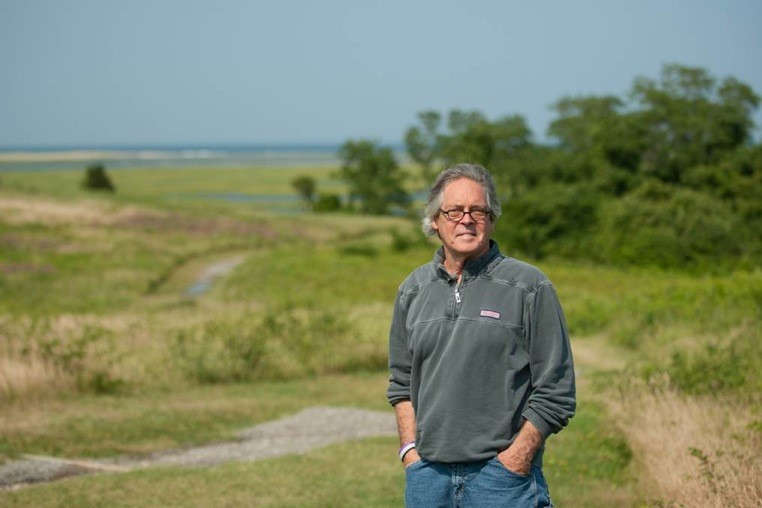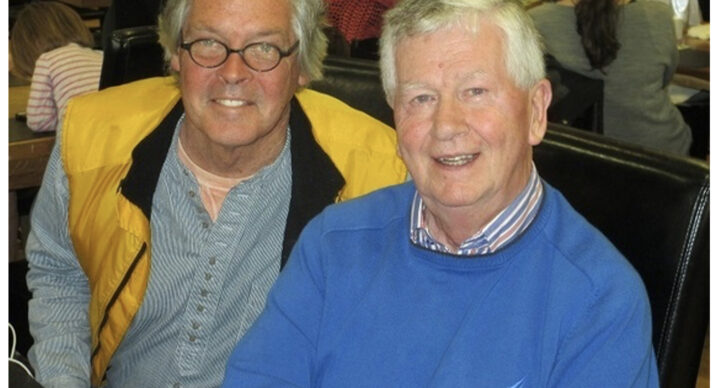
Posted February 16, 2023
By Greg O’Brien

“Snap out of it!”
—Loretta Castorini, in the film Moonstruck
When Loretta Castorini, played by Cher, slapped troubled Ronny Cammareri, played by Nicholas Cage, in the seminal film Moonstruck, the brash smack to the face struck a chord with troubled souls, then and now.
Just get over it! Right?
Not so easy to snap out of it for those in the throes of Alzheimer’s and related dementias. The bogeyman is still on the loose.
As world experts race for a cure, harnessing some of the brightest minds on the planet, those on this precarious journey—an estimated 55 million worldwide, projected to reach 78 million in six years, then add in the caregivers—must have heart. For the mind and the heart, the place of the soul, are both vital for victory over a demon of a disease that has run its serpentine course since ancient times, demoralizing generations upon generations.
The blending of science and the soul, I believe, will bring triumph. But it will take time and patience. Researchers bring both extraordinary skills and passion to this fight, while the rest of us strive to bring to the battlefield our enduring humanity and compassion, emanating from the soul.
One can’t measure or quantify the latter; it can’t be put through a spectrometer. We just marvel at it, forever thankful for what makes us human—the ability to press on, to encourage others in perpetually challenging circumstances. Victory over Alzheimer’s and other dementias will not happen without this. There is strength in numbers, in walking in faith and hope.
Alzheimer’s isn’t just your grandparents’ disease. It has been around a long, long time under various designations. Perhaps, maybe even, dating back to the Garden of Eden.
What was Adam thinking?
About 2,400 years ago Plato described an illness that “gives rise to all manners of forgetfulness, as well as stupidity.”
About 2,000 years ago, the Roman poet, Juvenal, characterized a phenomenon: “Worse than any loss in the body is the failing mind which forgets names… and cannot recognize the face of the old friend who dined with him last night, nor those of the children whom he has begotten and brought up.”
In Ancient Egypt, a scribe wrote of a close associate, “Every night becomes more and more childish.”
Scripture, unwittingly, may have put an exclamation point on Alzheimer’s and other forms of dementia in the Gospel of John:
“When you were younger,
“You dressed yourself
“And walked wherever you wanted,
“But when you are old,
“You will stretch out your hands,
“And someone else
“Will dress you, and carry you to places
“You do not want to go.”
—John 21:18
I’m being carried today to places I don’t want to go. I lost my maternal grandfather, my mother, and paternal uncle to Alzheimer’s, and before my father’s death, he too was diagnosed with Dementia. I was the family caregiver for my parents.
Alzheimer’s now has come for me—diagnosed about ten years ago, a disease that experts say can take 20-25 years to run its course.
I can’t snap out of it‚ as much as I seek too, falling over the years deeper and deeper into a black hole of loss of self, loss of place, memory loss, anger, withdrawal and the like. I was asked by my good friends at the Cure Alzheimer’s Fund to document this dissent.
For now, I refuse to give in. I’m working off what doctors call “cognitive reserve,” as my late mother did—the hero of my life who died after waging a brave and fierce battle against Alzheimer’s. She taught me that when the mind fails, speak from the heart, the soul, which I believe survives forever. I’m wholly imperfect, (just ask my friends), but as an Irish Catholic, more evangelical now, I have deep faith in this. My intent is not trying to proselytize here; we all find faith in different ways. But I believe, through my Mom, that the soul is the essence of love and life, and survives forever, and that the mind may not be all that it’s cracked up to be, in spite of what some of the doyens say.
“Memory is everything. Without it we are nothing,” observed neuroscientist Eric Kandel, winner of the 2000 Nobel Prize for his groundbreaking research on the physiology of the brain’s capacity for memory. Memory is the glue, Kandel said, that binds the mind and provides continuity. “If you want to understand the brain,” his late mentor, eminent neurologist Harry Grundfest, counseled him, “you’re going to have to take a reductionist approach, one cell at a time.”
Cell by cell, Kandel took the brain apart. Had he dug a bit deeper, he might have found that my mother was right. While memory offers delineating context and perspective, it doesn’t define us. Definition is found in the spirit, in the soul, but one must dig for it. “An unexamined life,” Socrates once said, “is not one worth living.”
The heart clearly is far more than just a ticker, reflects poet Linda Ellis in “The Dash.”
“I read of a man who stood to speak
“At the funeral of a friend
“He referred to the dates on the tombstone
“From the beginning…to the end
“He noted that first came the date of birth
“And spoke the following date with tears,
“But he said what mattered most of all
“Was the dash between those years.”
Over the years, I’ve lost many friends to Alzheimer’s and other forms of dementias in their dash. One of them, Ken Sullivan, who lived with his family outside Boston, used to have beers with a good friend Paul Boyce after Ken’s diagnosis and on-going progressions. They talked about Alzheimer’s and how unfair it was. Like the final scene in the movie Charly, adapted from the book Flowers for Algernon, they talked about the day when Ken would not recognize Paul.
“You won’t see it coming,” Paul told him. “But I will.”
“I know,” replied Ken. “I’ll just be along for the ride.”
All of us in this journey, in our dash, are along for the ride…
Writes poet Ellis eloquently:
“If we treat each other with respect
“And more often wear a smile,
“Remembering this special dash
“Might only last a little while
“So, when your eulogy is being read
“With your life’s actions to rehash…
“Would you be proud of the things they say
“About how you spent YOUR dash?”
(Greg O’Brien, author of On Pluto: Inside the Mind of Alzheimer’s, is a career journalist and an advocate nationally for finding a cure for Alzheimer’s. Facebook: https://www.facebook.com/GregOBrien.Author.OnPluto/)





